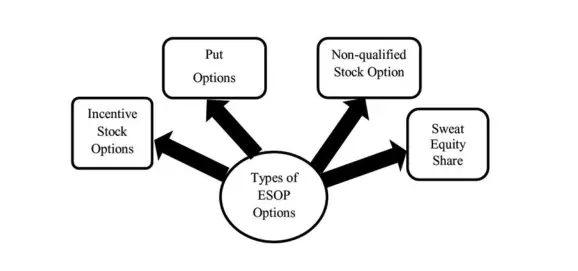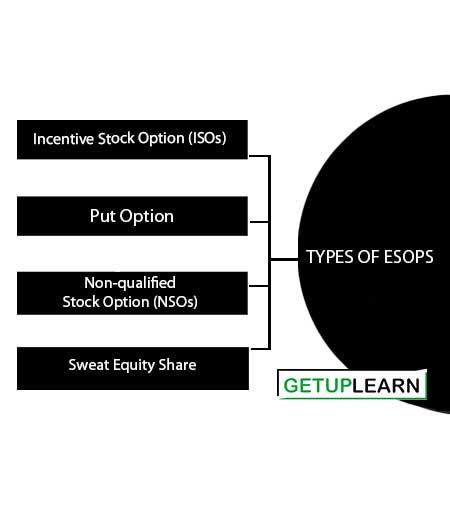
Table of Contents
Types of ESOPs
There are broadly speaking three types of ESOP options as follows:

Incentive Stock Option (ISOs)
These are also called qualified stock options because they qualify for having special tax treatment. No income taxes become due at the time of granting or exercising such option, as the tax is deferred until the stock is sold.
Put Option
It is basically a financial contract between a buyer and a seller of the option. The buyer acquires a long position by purchasing the right to sell the underlying instrument to the seller of the option for a predetermined specified price called the strike price during a specified period of time.
If the option buyer exercises their right, the seller has an obligation to buy the underlying stock from the buyer at an agreed strike price, irrespective of the ongoing current market price. In exchange for having the option, the buyer has to pay the seller a fee called the option premium.
Non-qualified Stock Option (NSOs)
These are options that do not qualify for the special treatment accorded to incentive stock options. ISO s are available only for employees and other related restrictions are imposed on such stocks. For regular tax purposes, ISO has an advantage that no income is reported when the option is exercised.
NSO does not have any restrictions imposed on the buyer. AN employee is liable to pay the tax at specified ordinary rates on gains that they realize at the time of selling the stock.
Is given to the employees on favorable terms in recognition of their work. It usually involves giving option to the employees to buy shares of the company, so that they become part owners and participate in the profits apart from earning salary.
FAQs Section
What are the types of ESOPs?
There are broadly speaking three types of ESOP options as follows:
1. Incentive Stock Option (ISOs)
2. Put Option
3. Non-qualified Stock Option (NSOs)
4. Sweat Equity Share.


